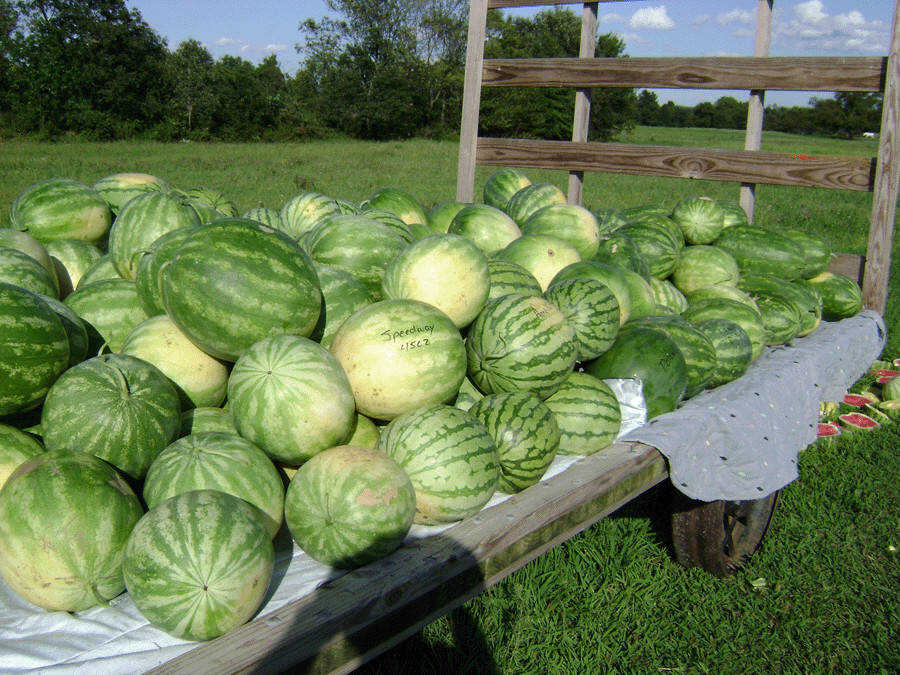Watermelon variety research in Lamar reveals best types for profitable growth in Missouri

A University of Missouri Extension specialist from southwest Missouri and a farm in Lamar played important roles in a recent field variety trial that could help Missouri farmers make more money planting watermelons.
According to Jay Chism, an agronomy specialist with MU Extension in Barton County, vegetable acreage around Missouri continues to increase due to a strong demand for locally grown products.
"But as with all crops, variety selection is an important factor when trying to produce high yielding, market ready, fresh products," said Chism.
Variety trials for watermelons have been planted in other states. However, Missouri's topography and soil types vary significantly and university research trials are important to insure the best melon variety is planted in each region of the state.
"Most watermelon variety trials have been conducted on sandy soils which are atypical of most of Missouri," said Chism. "New seedless watermelon varieties have also been developed in recent years, but have not been examined in replicated trials in Missouri." The University of Missouri watermelon variety test done between June 15 (planted) and Aug. 21 (harvested) examined 16 different seedless watermelon varieties for yield, quality, and sugar concentration.
The trial was conducted at the University of Missouri's Bradford Research and Extension Center near Columbia and on a vegetable grower's farm near Lamar, Mo.
There was also a planting at Carver Farm on the campus of Lincoln University conducted by Sanjun Gu. However, that planting had several production issues so the data was thrown out.
Each watermelon variety was planted on plastic mulch with four plants per replication with four replications per entry. A seeded pollinator plant was planted separating each seedless cultivar.
"The data shows which are the winners in yield and brix test. The Millennium variety performed the best in yield and had an average weight of 14.47 pounds, which is marketable," said Chism.
The Amarillo and Buttercup varieties also performed well and had impressive yields but they are both yellow flesh cultivars so they have a limited market according to Chism.
"Tons per acre and size of fruit are two important pieces of information for a producer. Some wholesale markets don't want melons larger than 18 pounds," said Chism. This research will help Missouri farmers know which varieties to use in order to maximize yields and profits.
"Seedless watermelons continue to generate both grower and consumer excitement. In many urban markets around the United States, the percentage of seedless melons continues to grow at local fruit stands, farmers' markets and supermarkets," said Chism.
Chism planted and harvested the watermelons in Lamar, and took the necessary readings. The landowner, Toby Detweiler and his son John also helped with the harvest.
Tim Reinbott was in charge of the planting at Bradford Farm in Columbia.
Dave Trinklein contacted the seed companies and started the tested plants in the University greenhouses and he also ran the statistics. A specialty crops grant from Missouri Department of Agriculture funded the research project.
For more information, contact Chism in the Barton County Extension Center, (417) 682-3579.
